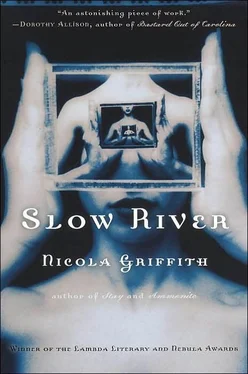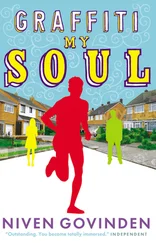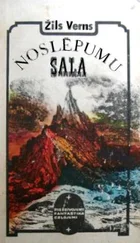“No. You’re doing fine.”
When he finished with the readings, I held out my gloved hand to help haul him out of the trough. He pretended not to see it, and climbed out unaided. I could tell by the hunch of his shoulders that he was embarrassed about deliberately avoiding my hand, and wondered why. I did not ask.
I watched Paolo on and off until the break, and it was when I was handing him the scrape, a short metal tool for unclogging the rake tines, that I realized he had not refused my help—he had refused my touch. Oh, he was very adept, graceful even, but he always made sure his hand never touched mine, or my foot his, when we were thigh-deep in the water, me holding back the bulrushes for him to clip the heads.
While I finished up the rushes I sent him back into the trough to do the next reading, and this time, when he waded out to the edge, I made sure I held out the clipper handle for him to grab. He accepted without hesitation. His smile was warm and very young-looking, completely at odds with the message sent by his stiff, almost disdainful body language.
That stiffness reminded me of something, but when I tried to remember, all I could conjure up was a vague memory of Katerine, years ago, grinning in triumph at something on the net. That was it. I went back to work.
Magyar was waiting for us again in the breakroom. Kinnis. turned off the net without being asked.
Magyar smiled, but it was not pleasant. “Some of you will be pleased to hear that, as of twenty hours today, all personnel on this shift who spend time in the water, which is to say all of you, will wear masks and full-body barrier protection at all times. As mandated by Health and Safety regulations. You never know when we could get an unexpected visit from an inspector.” She looked directly at me and it wasn’t hard to tell she was angry. I had a bad feeling I knew why.
“Some of you, of course, will not be pleased at the cost, which will come out of your next salary credit, and all of you will no doubt be annoyed at the reduction in productivity and subsequent reduction in salary, But blame that on those that make the rules and regulations.” Her voice was husky with anger. She looked at me again, and I understood: she thought she was preempting me. She thought I was a Health and Safety inspector. She was implementing these changes, to save her job. No wonder she was angry. Productivity would go down, and soon Hepple would be on her back. And she blamed me. “Questions?”
No one was about to ask her questions when she was in this kind of mood.
“Well, then. I’ll expect you back on shift, with masks, in exactly—” She looked at her watch. “—forty-two minutes.”
On her way out, she gave me a tight, matte-eyed nod. It was impossible to mistake the direct challenge. Cel noticed, and turned, puzzled. I managed to shrug and look surprised, but underneath my skinny I was slippery with sweat.
“Why’s she got it in for you?” Kinnis asked, but he looked wary, as though wondering if talking to me was a mistake.
“No idea.” My heart felt cold and dense and suddenly I wondered if my accent sounded right, if the quick, liquid syllables were thickening, if just by listening to me everyone would know who I was. I felt dizzy and horribly exposed. At least Magyar hadn’t actually checked my records yet, or I wouldn’t still be here. But it was only a matter of time. I had to get Spanner to speed things up. I fumbled my way to my locker.and took out my food, trying to seem unconcerned. My hands were shaking. I needed to sit down.
Paolo was already sitting near the fish screen. I sat next to him, but not too close. I said nothing for a moment, not trusting my voice. He sat quietly, watching the screen. He was not eating.
“Here.” I held out half my food, then remembered and put it on the table next to him instead. “You can bring enough for two tomorrow.”
“I thought…”
“There is a cafeteria, but you have to scrub down and change before they’ll let you in. And the food takes a long time and costs a lot. And it’s full of executives and supervisors who’ll stare at you like you’re a bug.”
“Thank you.” He bit into the sandwich hungrily. I made a mental note to bring food tomorrow, anyway. He looked as though he needed to eat as much as he could afford to buy.
Kinnis and Meisener sat down opposite us. They must have decided it was safe to talk to me, after all. “So, Paolo, where’re you from?”
“I’ve lived here since I was two years old.” The words themselves were neutral enough, but I could hear the tension behind them. He didn’t want to say any more.
Kinnis opened his mouth to ask another question, but Meisener was already talking.
“I was born here, but I’ve not spent much time in the city the last twenty years,” he said. “Been all over the world. Army for a while, then mechanic for EnSyTec. Went everywhere. Then I got fed up of traveling, wanted to settle down, have kids, Took a job in Sarajevo, working the sewage lines. Got married.”
“You have any kids, then?” Kinnis asked, forgetting Paolo.
“Two.” And then they were pulling out pictures, talking about their children.
Paolo seemed to enjoy being included in their conversation without having to contribute. I was left to wonder how to deal with Magyar.
When I got home that night the message light was blinking on my screen. I hit PLAY before I took my jacket off; maybe it was Ruth and Ellen, inviting me round.
It was Spanner. “Hyn and Zimmer will be at the Polar Bear tomorrow night. Meet me there.”
It turned itself off. I had not realized how much I’d been hoping for Ruth to call. I sat by the blank screen for a long time, listening to the deep, three-in-the-morning quiet.
I woke several times during the night, my heart beating too fast, wondering whether I should call the regional Health and Safety Council about Hedon Road.
* * *
Lore followed Spanner down the dark stairwell and into the warm night. She kept her eyes down, fixed on Spanner’s feet, refusing to look at the emptiness of outside. The wet asphalt sparkled in the sodium streetlights. She managed to get to the bar across the road without sweating too much.
The Polar Bear was dim and warm and no one looked up when they entered.
Lore had never been in a place like it. The casual bars and open-air cafes of Europe, the restaurants of Australia and tea rooms of India had not prepared her for this fecund, dark place, rich with the fruity scents of beer and layered with muted conversation. The wooden floors and bar surface were highly polished; the bar itself bellied out in biscuit-colored porcelain molded with grapes and leaves and bottles.
“It looks pregnant,” she said, fascinated, wanting to go up and touch it, but Spanner was walking toward a table in the corner, and she followed.
An elderly couple were already seated. Spanner pulled out a chair. “This is Lore.”
“I’m Hyn and he’s Zimmer, but don’t worry if you get us mixed up, a lot of people do.”
Spanner went to the bar to get the drinks and Lore was left at the table with a man and a woman who looked like dried tobacco leaves with berries for eyes. Hyn and Zimmer. These were the people who knew something about locks.
They seemed utterly at home in this setting, but Lore suspected they might blend as easily with the woods as this urban nightscape. She wondered if they were brother and sister, or whether they had just grown to resemble each other in the bizarre way of some couples. She searched for something to say. Her early training, the endless meetings with local and national dignitaries, took over. “It’s an unusual name, the Polar Bear.”
“Legend has it that a polar bear escaped from the zoo three hundred years ago, and was shot on this site.” Zimmer sipped his dark brown beer. They seemed to find her amusing.
Читать дальше












